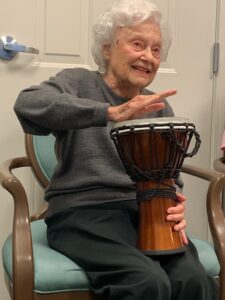 We understand the challenges families face when caring for aging loved ones, especially those experiencing Sundowner’s Syndrome. Sundowner’s Syndrome, also known as “late-day confusion,” is a common condition among elderly individuals, characterized by increased agitation, confusion, and anxiety in the late afternoon and evening hours. Coping with Sundowner’s Syndrome requires patience, understanding, and specialized care strategies. Here are our top strategies for families navigating this complex condition:
We understand the challenges families face when caring for aging loved ones, especially those experiencing Sundowner’s Syndrome. Sundowner’s Syndrome, also known as “late-day confusion,” is a common condition among elderly individuals, characterized by increased agitation, confusion, and anxiety in the late afternoon and evening hours. Coping with Sundowner’s Syndrome requires patience, understanding, and specialized care strategies. Here are our top strategies for families navigating this complex condition:
- Establish a Consistent Routine: Consistency is key for individuals with Sundowner’s Syndrome. Establishing a predictable daily routine can help reduce anxiety and agitation. Set regular meal times, bedtime rituals, and activities to create a sense of stability and security for your loved one.
- Manage Environmental Triggers: Environmental factors such as low lighting, noise, and clutter can exacerbate symptoms of Sundowner’s Syndrome. Create a calming environment by ensuring adequate lighting, minimizing noise levels, and decluttering living spaces. Consider using nightlights or soothing music to promote relaxation in the evening.
- Encourage Daytime Stimulation: Keeping your loved one engaged and active during the day can help regulate their sleep-wake cycle and reduce symptoms of Sundowner’s Syndrome. Plan stimulating activities such as walks, hobbies, or social outings to promote daytime alertness and prevent excessive daytime napping.
- Monitor Medications: Certain medications can worsen symptoms of Sundowner’s Syndrome or interact with existing conditions. Work closely with your loved one’s healthcare provider to review their medication regimen and make any necessary adjustments. Avoiding caffeine and alcohol in the evening can also promote better sleep quality.
- Provide Emotional Support: Coping with Sundowner’s Syndrome can be emotionally challenging for both the individual and their caregivers. Offer reassurance, patience, and understanding to your loved one during episodes of confusion or agitation. Practice active listening and validate their feelings to help them feel heard and supported.
- Professional Care: In many cases, managing Sundowner’s Syndrome may require professional assistance. Consider enlisting the help of Senior Living Specialists Houston to help you transition to a memory care community where specialized support is available 24/7.
Navigating Sundowner’s Syndrome requires a comprehensive approach that addresses physical, emotional, and environmental factors. By implementing these strategies and seeking appropriate support, families can provide compassionate care and improve the quality of life for their aging loved ones affected by this challenging condition.









